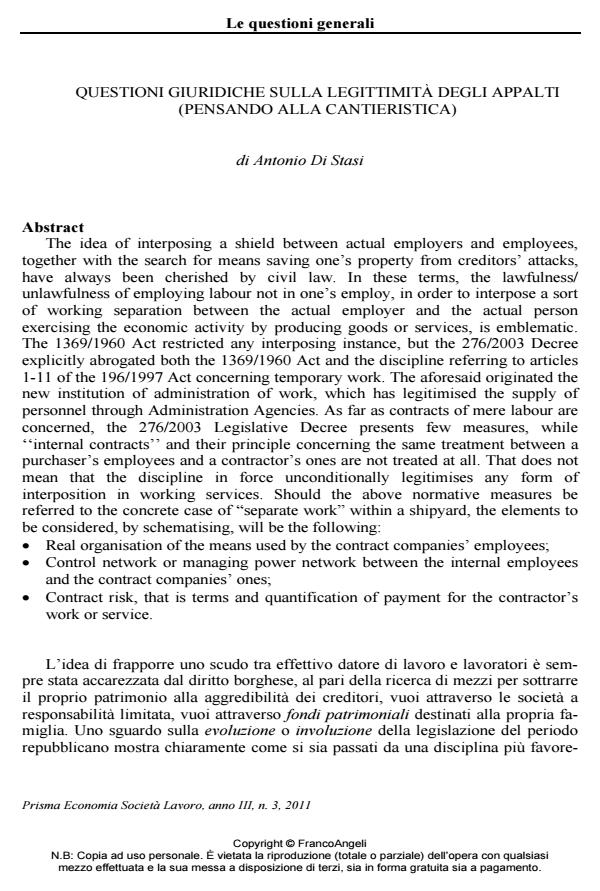Questioni giuridiche sulla legittimità degli appalti (pensando alla cantieristica)
Titolo Rivista PRISMA Economia - Società - Lavoro
Autori/Curatori
Anno di pubblicazione 2012 Fascicolo 2011/3 Lingua Italiano
Numero pagine 8 P. 55-62 Dimensione file 633 KB
DOI 10.3280/PRI2011-003005
Il DOI è il codice a barre della proprietà intellettuale: per saperne di più
clicca qui
Qui sotto puoi vedere in anteprima la prima pagina di questo articolo.
Se questo articolo ti interessa, lo puoi acquistare (e scaricare in formato pdf) seguendo le facili indicazioni per acquistare il download credit. Acquista Download Credits per scaricare questo Articolo in formato PDF

FrancoAngeli è membro della Publishers International Linking Association, Inc (PILA)associazione indipendente e non profit per facilitare (attraverso i servizi tecnologici implementati da CrossRef.org) l’accesso degli studiosi ai contenuti digitali nelle pubblicazioni professionali e scientifiche
The idea of interposing a shield between actual employers and employees, together with the search for means saving one’s property from creditors’ attacks, have always been cherished by civil law. In these terms, the lawfulness/ unlawfulness of employing labour not in one’s employ, in order to interpose a sort of working separation between the actual employer and the actual person exercising the economic activity by producing goods or services, is emblematic. The 1369/1960 Act restricted any interposing instance, but the 276/2003 Decree explicitly abrogated both the 1369/1960 Act and the discipline referring to articles 1-11 of the 196/1997 Act concerning temporary work. The aforesaid originated the new institution of administration of work, which has legitimised the supply of personnel through Administration Agencies. As far as contracts of mere labour are concerned, the 276/2003 Legislative Decree presents few measures, while ‘‘internal contracts’’ and their principle concerning the same treatment between a purchaser’s employees and a contractor’s ones are not treated at all. That does not mean that the discipline in force unconditionally legitimises any form of interposition in working services. Should the above normative measures be referred to the concrete case of "separate work" within a shipyard, the elements to be considered, by schematising, will be the following: Real organisation of the means used by the contract companies’ employees; Control network or managing power network between the internal employees and the contract companies’ ones; Contract risk, that is terms and quantification of payment for the contractor’s work or service.;
, Questioni giuridiche sulla legittimità degli appalti (pensando alla cantieristica) in "PRISMA Economia - Società - Lavoro" 3/2011, pp 55-62, DOI: 10.3280/PRI2011-003005